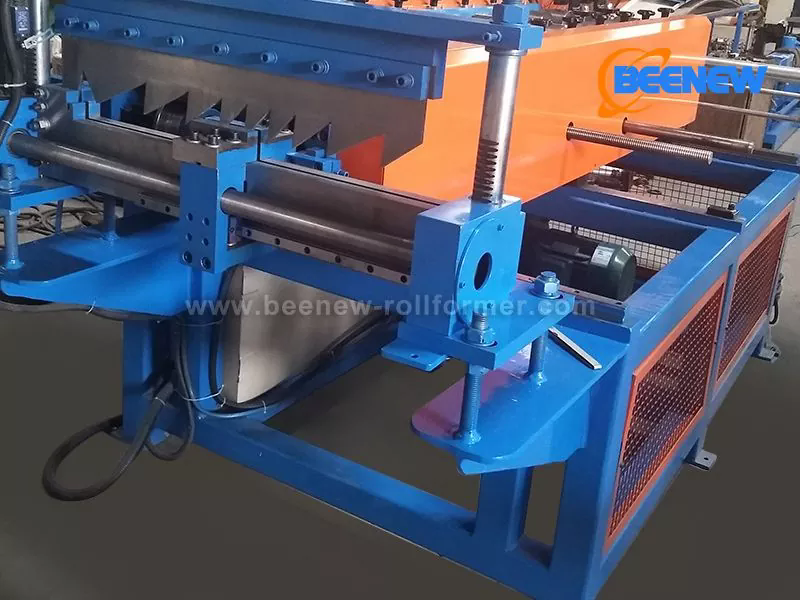Understanding the Roll Forming Machine: A Key Tool in Metal Fabrication
2025-07-10
In the metalworking industry, efficiency, precision, and consistency are crucial. One of the most important machines that help achieve these goals is the Roll Forming Machine. This advanced piece of equipment plays a vital role in shaping metal into uniform profiles used across various industries such as construction, automotive, and manufacturing.
What Is a Roll Forming Machine?
A Roll Forming Machine is a type of industrial machinery used to continuously bend long strips of metal into specific cross-section profiles. The process involves feeding metal coils through a series of rollers that gradually shape the material without changing its thickness. The machine can produce complex shapes with high accuracy and repeatability.

How Does a Roll Forming Machine Work?
The roll forming process follows a continuous, step-by-step method:
1. Material Feeding: Metal coil (such as steel, aluminum, or copper) is fed into the machine.
2. Progressive Rolling: The material passes through multiple roller stations. Each set of rollers bends the metal slightly more until the desired shape is achieved.
3. Cutting: Once the final profile is formed, the machine cuts the product to the required length using an integrated cutting system, often hydraulic or fly-cut.
4. Collection: The finished parts are collected for further processing or direct use.
What Are the Advantages of Roll Forming?
High Production Speed: Capable of producing long lengths of metal profiles quickly and continuously.
Precision and Consistency: Ensures uniformity in every piece with tight tolerances.
Material Efficiency: Minimizes waste and material loss.
Versatility: Can produce a wide range of shapes, including C-channels, U-channels, roofing panels, door frames, and more.
Cost-Effective for Large Volumes: Ideal for mass production, reducing unit costs.
Applications of Roll Forming Machines
Roll forming is widely used in industries such as:
Construction: For metal roofing sheets, wall panels, steel framing, and gutters.
Automotive: Producing structural parts, bumpers, and reinforcements.
Appliances: Manufacturing parts for refrigerators, ovens, and washing machines.
Storage Solutions: Shelving, racking systems, and cable trays.
Types of Roll Forming Machines
Manual Roll Forming Machines: Suitable for small-scale production or light-duty materials.
Automatic Roll Forming Machines: Fully automated systems with computer controls, ideal for high-volume production.
Customized Roll Forming Machines: Tailored machines for specific profiles or materials.
Conclusion
The Roll Forming Machine is an essential tool for modern metal fabrication, combining speed, precision, and versatility. Its ability to produce high-quality metal profiles efficiently makes it indispensable in many industries. As technology continues to advance, roll forming machines are becoming smarter, more energy-efficient, and more adaptable to a wide range of applications.


